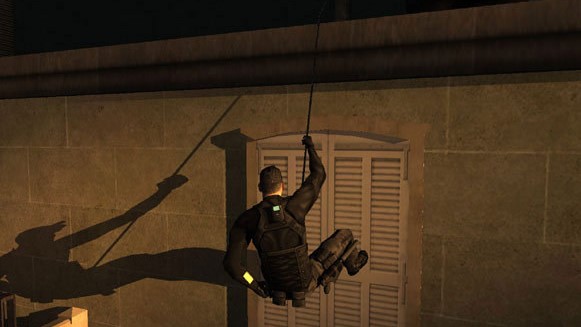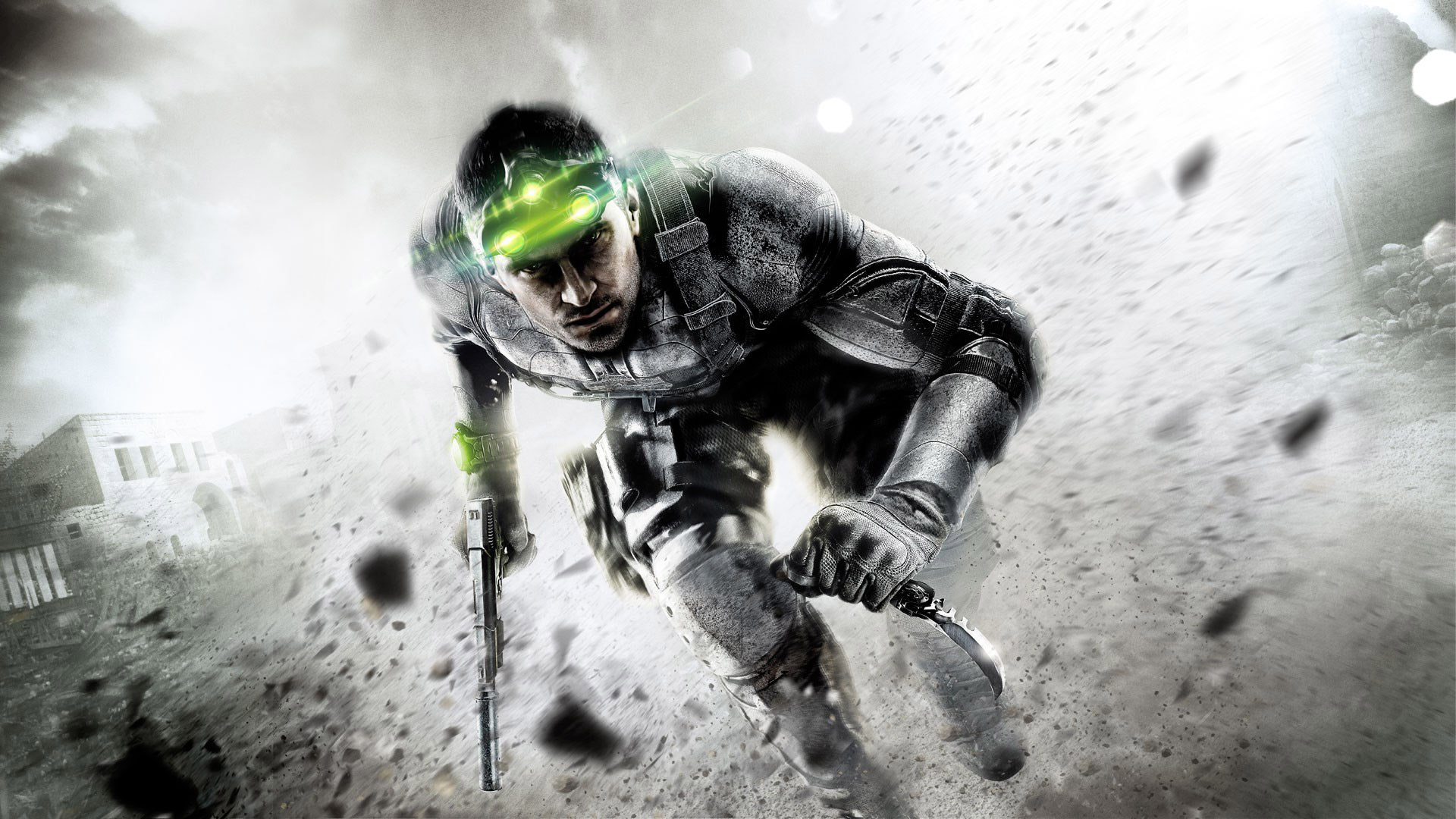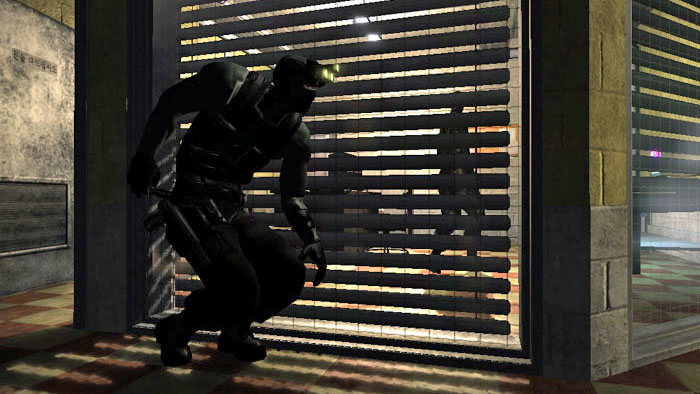Splinter Cell remake needs some drastic changes if it’s to step out of the shadows
Spoilers for Splinter Cell Blacklist ahead
The news that Ubisoft is remaking the original Splinter Cell, rather than continuing the story after the last installment (Blacklist), was, for me, a bummer. It’s like waiting 10 years for the next installment of A Song of Ice and Fire, only to find out George R.R. Martin is rewriting the first one (actually, I wouldn’t put it past him).
In 2013’s Blacklist, we left protagonist Sam Fisher preparing to interrogate Majid Sadiq, the former MI6 agent turned head of the Engineers faction. It was a post-credits scene, which usually hints that, well, our hero will return (at least that’s why audiences remain seated for the credits after a Marvel film, much to the annoyance of cinema staff). But, eight years later, Sam Fisher’s story remains - in my opinion - unfinished.
There have been glimpses of hope over the years, however, that the story would continue. In May 2019, Ubisoft’s Creative Director, Julian Gerighty, teased a new game by changing his social media background to Splinter Cell image, suggesting that - finally - a new mainline entry was in the works. Frustratingly, nothing substantial came of this, and, over the years, the closest we’ve gotten to slipping into Fisher’s goggles again was with his appearance as a playable character in Tom Clancy’s Ghost Recon and Rainbox Six Siege (don’t even get me started on the upcoming Splinter Cell VR game). While these guest spots are certainly not the new game I’ve been holding out for, they have suggested a Splinter Cell resurgence is happening - one that will hopefully end in a new mainline series entry.
But it looks like that dream may still be a while off yet, as Ubisoft announced in December 2021 that it is indeed making a new Splinter Cell but, rather than a new mainline entry, a remake of the original is in development.
Now that doesn’t necessarily mean a mainline Splinter Cell game is totally off the cards, but rehashing a classic, rather than ushering Sam Fisher into a new era with a brand new game, likely won't see the series step out of the shadows as dramatically as it deserves to - unless there are some pretty drastic changes.
Redefining stealth

Billed as a rival to Metal Gear Solid 2, Splinter Cell changed stealth games as we knew them when it was released back in 2002. Set in the near-future of 2004, the original Splinter Cell had the modern infiltration tropes of the time (night-vision goggles, pistols with silencers) and a story focused on – obviously – preventing World War 3.
Critics at the time praised its evolution of the stealth-action genre; for example, light and shadow were the main focus of the gameplay. Sam (wearing his now-iconic night-vision goggles) would shoot out lights to darken an alleyway, because the AI’s vision was impaired in the darkness. It sounds simple, but it hadn’t been done like this before - we could shoot out lights in Metal Gear Solid 2, but it didn’t really affect the enemy’s sight. In Splinter Cell, guards would notice the broken light and investigate – so we had to weigh that risk in our tactics. It redefined the stealth game and showcased how playing with lighting and shadows can enhance gameplay massively.
We can see the influence of this evolution in the mainstream stealth games that came immediately after Splinter Cell; from the ridiculous shadow-safe-zones in Manhunt to the dark camo and face paint in Metal Gear Solid 3.
Today stealth is ubiquitous; from The Last of Us to Hitman to Assassin’s Creed to Untitled Goose Game, it’s hard to find an action game without some kind of stealth mechanic - even the bullet-spraying Nathan Drake leaned more towards neck-braking in Uncharted 4. In 2002, however, it was new and exciting – and that was part of Splinter Cell’s appeal. It’s hard to imagine a linear stealth-‘em-up in the 2020s with anywhere near the same impact. To break that kind of ground with the remake, Ubisoft needs to look at existing games – Metal Gear Solid 5 in particular – and add a new ingredient. Hacking, for example (a big part of the early games), could be expanded at length with modern technology.
Rebuilding a classic

When anything gets remade, whether a film or a game, the idea is to recreate an old idea using newer methods. This might be because the original didn’t achieve its potential. Usually though, and I hate to be cynical, it’s because the original was perfect and there’s money to be made in rehashing a classic. Classic pieces of art evoke in us the time we first experienced them, and nostalgia plays a big role in our culture - especially in the culture of video games - but recapturing that nostalgia can be a tricky business
"The limitations of the original Splinter Cell – the uneven aiming, the unstable and unreliable stealth attacks – are what gave it its challenge. These clunky old mechanics have a certain charm and heaps of nostalgia attached to them, even if they are frustrating at times. "
When remakes don’t work, they risk besmirching the memory of a classic. For instance, the Metal Gear Solid remake, The Twin Snakes, on GameCube completely broke the mechanics of the original game. In the original Metal Gear Solid, we couldn’t aim our regular weapons in first-person, nor could we hang off a ledge. Giving us these abilities in the remake (using the Metal Gear Solid 2 engine) allowed us to hang off the catwalks to hide from the already-sparse enemies and shoot bosses in the head to finish them off in no time. But it was just too easy. The restrictions of the original PlayStation made Metal Gear Solid challenging and fun - removing these restrictions diluted the formula rather than enhancing it.
Splinter Cell has a lot in common with Metal Gear Solid, and this is a cause for concern. A modern engine runs the risk of airbrushing the original’s charm. For example, in Splinter Cell, I often wondered whether to strike once for a stealth attack, or twice. It’s hard to tell which weirdly specific hitbox Sam is closer to - two whacks for a front attack, one for a rear. This ‘issue’ would be ironed out in a remake, which is a travesty. The limitations of the original Splinter Cell – the uneven aiming, the unstable and unreliable stealth attacks – are what gave it its challenge. These clunky old mechanics have a certain charm and heaps of nostalgia attached to them, even if they are frustrating at times.
But that’s not to say that recreations can’t work. Last year’s Final Fantasy 7 Remake didn’t feel anything like the original, it was more like a tribute, replacing turn-based combat with live combat, and extending what was a small chapter in the original title into a fully-fledged game. It was a completely new vision, showing Midgar as we’d never seen it. And (SPOILER ALERT), it’s technically a sequel.
We know that the Splinter Cell remake will also be made from the ground up, so I’m praying that Ubisoft will take cues from Square Enix’s recreation of Final Fantasy 7 Remake. Instead of a polished clone like the Crash Bandicoot N. Sane Trilogy, we could get a retrospective look at 2004 from the eyes of a Sam Fisher with new dimensions. A new spin on this classic game could see Ubisoft adding maps three-times the size, new (perhaps more advanced) weapons, and a few surprising plot points - while taking advantage of the latest technology and hardware to create a ground-breaking gameplay experience for a new era (as the original did). Sure, this may not be to every fan’s tastes, but it would help Splinter Cell feel fresh 20 years later.
What fans have been waiting for?

While a Splinter Cell remake isn’t the announcement I hoped for, a quick look at YouTube and Twitter comments shows me how excited Sam Fisher fans are. There’s a buzz around the use of the Snowdrop Engine, which is being used to develop Avatar: Frontiers of Pandora, with some fans already hoping that Pandora Tomorrow and Chaos Theory will get the same treatment.
Who am I to turn my nose up at the happiness of others? Plus, maybe there’s still a sequel to Blacklist in the pipeline? A mainline, open-world Splinter Cell entry that continues the saga? I won’t hold my breath but, for now, I’ll remain thankful that this announcement had nothing to do with VR, and blow the dust off my PS2.
- New games 2021: upcoming game release dates for console and PC
Contributer : Techradar - All the latest technology news https://ift.tt/30MCrnS

 Reviewed by mimisabreena
on
Tuesday, December 21, 2021
Rating:
Reviewed by mimisabreena
on
Tuesday, December 21, 2021
Rating:














No comments:
Post a Comment